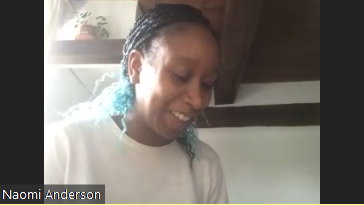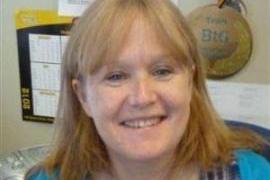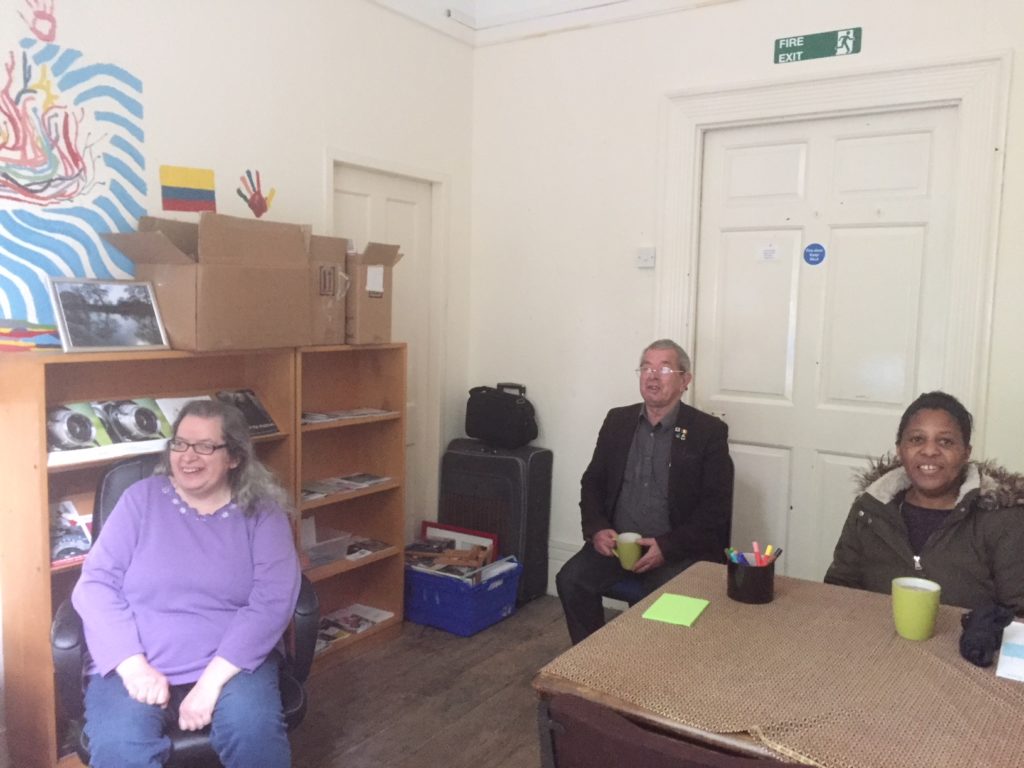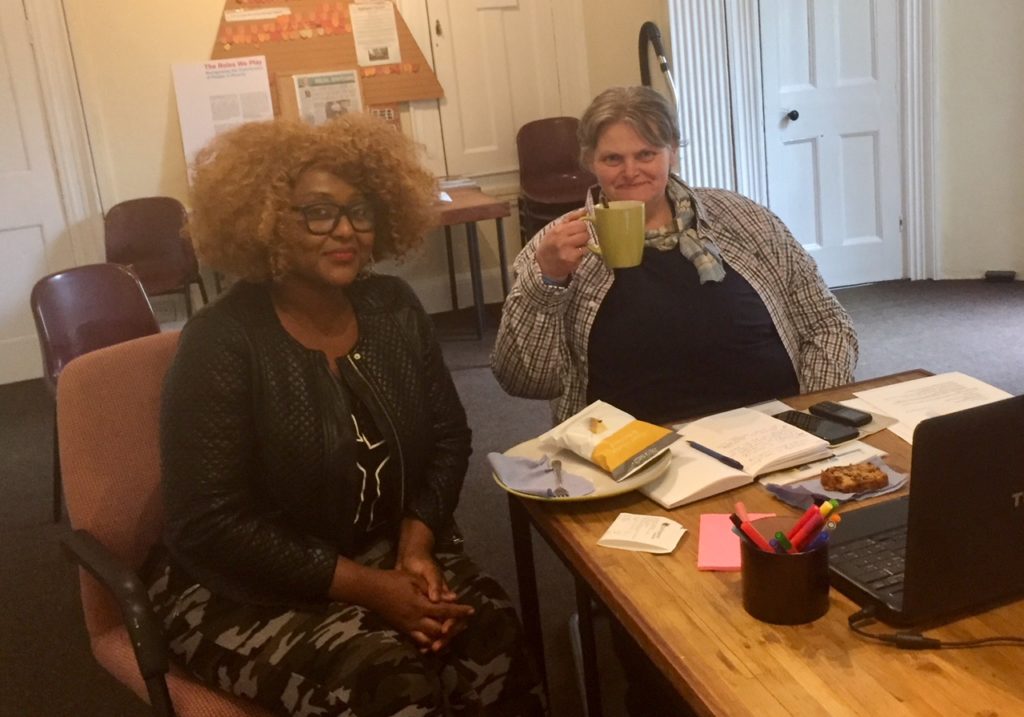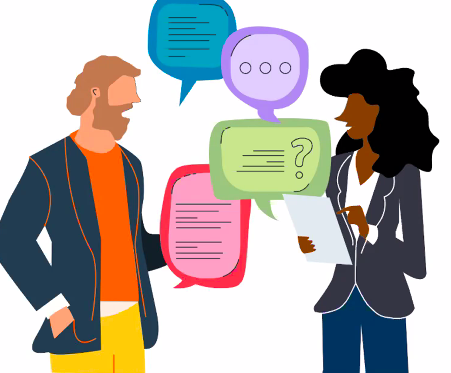Words That Hurt, Discrimination, and Stigmatisation: A Conversation About Black Lives Matter
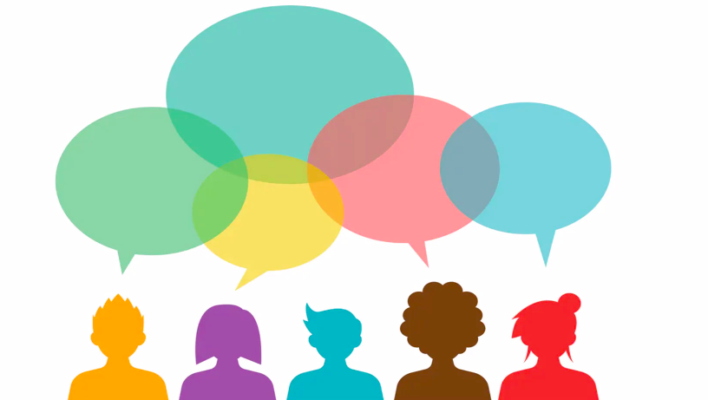
As the Black Lives Matter protests continue, the ATD Fourth World community keeps engaging in conversations about racism, extremism, vandalism, and the heart-breaking acts of violence — both those that inspired the protests and a few that marred otherwise peaceful protests. To read our previous articles about this issue, please click here and here.
We all agree that ATD Fourth World stands against racism and all forms of oppression or prejudice. We stand for no lives left behind, which means treating each person with respect, and defending human rights.
Many of us wonder: what would it take for society to mobilise mass protests against poverty? It hurts to see that even the current unprecedented level of activism does not include the discrimination, humiliations and stigmatisation of people in poverty.
We speak to each other respectfully from different life experiences and points of view: many of us live in poverty; some are white; some are from Black, Asian and minority ethnic backgrounds; and some are from multiracial families and communities. For all of us, recent events bring up many strong emotions. This makes for meaningful dialogue — which sometimes means being uncomfortable.
To read a collective statement from the National Coordination Team of ATD Fourth World, please click here. The article below, like this previous one, is based on a series of conversations in recent weeks among activists, friends and core team members of ATD Fourth World.
Poverty and racism
Naomi Anderson is a Black British woman who is part of ATD Fourth World’s international Volunteer Corps. She says:
“I see racism and poverty as very much interlinked. The high proportion of black residents in lower income housing makes them much more likely to be arrested — and once someone has been arrested, they’ll have so much trouble getting a job.
“Black children are seen in schools as being disruptive.
“That prejudiced view makes them much more likely to get low grades and to leave school without finishing — which also leads to poverty.
“Of course, there are white people in poverty too. But when I was growing up in southwest London, all the way from nursery through A levels, I never had a single Black teacher. It’s important for children, white and Black, to see Black teachers so that it’s clear that Black people can be smart and have a role of authority. It shows what we can achieve.”
Sue Elvidge has lived as the lone white person in a black community for twenty years. She remembers that when she gave birth to multiracial children, she took a course on Black history and heritage. “I wanted to empower myself because that part of my children’s heritage is important. I remember a 21-year-old Black girl in my class. She had no idea about her heritage because it wasn’t taught at school. As we discovered more about slavery, she had a breakdown because it was so traumatic.”
‘Discrimination is something you can feel’
Tricia McConalogue directs Bridging the Gap, a charity in the Gorbals which aims “to build positive relationships across the divides, with particular reference to integration of the Black and Minority Ethnic community”. Tricia says:
“Lots of people tell me, ‘I didn’t get that job because I’m Black’. But that’s hard to hear for the person who also didn’t get that job and who isn’t Black. How do you really know the reason for not getting a job? With housing too: some people feel like Black families always get the worst housing; while others are sure it’s white people who get the worst.
“Discrimination is so hard to prove. But it’s something you can feel. I was on benefits back when Maggie Thatcher was targeting single parents, saying we have weens just to get more benefits. I know the difference in how I was treated and how I was looked at.
“The difference between povertyism and racism is that you can smother up poverty but you can’t smother the colour of your skin.
“But the diversity policies are too complicated. We asked a housing officer to come explain it to participants at Bridging the Gap. But it’s not clear-cut and so it didn’t make sense to anyone. When so many people wait years to qualify for housing and you can’t let them know why someone else gets a home before they do, then it’s going to be divisive. When you hear someone else’s story, you can connect to that.
“But once people are put in these wee pigeonholes of diversity, it becomes divisive.”
Tricia McConalogue
‘My children get bullied because we live in poverty’
Tammy Mayes, who lives in Surrey, says:
“Poverty happens to everyone, white and Black. I am white and I have had prejudices against me since I was 4. I have PTSD due to being bullied from that age. I have had to defend myself against years of mental abuse by people that are supposed to protect others. I can’t be near windows at night. I can’t go out at night on my own because of the stuff that happened to me.
“When my boys were babies, we were made homeless due to the council not applying what we were entitled to. Social services put me and the boys in a B&B where I had to leave at 8 am and not return ’til 7 pm. But my husband was not allowed to live with us. For years, we were moved from one B&B to another but he wasn’t allowed to live with us, not ’til we got a council place.
“Big changes need to happen within the system for everyone, no matter what their race.
“I am finding it very difficult at the moment because I have had that type of abuse, of not being able to walk down the streets without stones and rocks being thrown at me. So yes, I understand that protesters are angry and I understand things need to change. But things need to change for everyone, not just one colour or race. I am also a victim; but who’s fighting for my rights and for the rights of my children who get bullied at school cause we live in poverty. ”
Interactions with the police and race
Police brutality and gang violence victimise people in poverty, whether black, white or from other backgrounds, due to stigma that goes beyond race. Thomas Mayes says, “Getting stopped by the police, a lot of it is to do with where you live. If you live in that housing project, there could be some bad people there, so they associate everybody in that housing project as the same.
“I grew up on an estate where I’d get stopped and searched by the police every other day. Some of it is racism, but a big majority of it is also where you grow up that can make it bad for everyone.”
Kathy Kelly says: “The Windrush scandal was terrible. But what resonated with me as a white woman in poverty is the way police and immigration, just like the DWP [Department for Work and Pensions] are so rigid and inhumane, all while hiding behind the mantra of ‘only doing their job’. I lost my home to crime and violence.
“Police brutality is rife. Ignorance, nastiness, and mockery are endemic for all of us.
“We get no help or services. I have to worry about my sons all the time. I’ve had to fight like hell for my family’s human rights, but we didn’t get them. Some people have the opportunities of an education. But our family have had the right to education and health pulled violently from under us constantly until I’ve lost confidence.”
‘No apology for kicking down the wrong door’
Sue observes:
“George Floyd’s death was shocking — but it’s just the tip of the iceberg. Here on our estate in south London, the other day the police tasered a Black neighbour of mine. He lives in a halfway house and is clearly unwell with mental health problems. The police were shouting and tasering away. Then they suddenly realised that he wasn’t well and that they’d gotten it wrong. The police jumped back in their car and sped away. They just left this man on the pavement. The poor man probably was just going out to look for a can of beer. It’s lucky he survived.
“The police should assess first before they jump in. There’s no apology if they kick down the wrong door. People here just get treated like statistics.
“I grew up in South Africa not trusting the apartheid police. When I first moved to England, I thought, ‘Oh, they must be nice bobbies here’. But then I saw twenty of them all pulling machine guns on one poor chap they’d pushed to the ground. I don’t know how dangerous that man was, but just one machine gun would have been enough to stop him from moving. No, the bobbies here aren’t so nice either.
“It’s predominantly Black people they’re fining for lockdown violations. The other day twenty police barged up to my neighbour’s yard saying they were holding a ‘mass gathering with anti-social behaviour’. They were a big group playing music just outside their home — but they all live there together; it was only one household. And playing music at 2 in the afternoon is not anti-social. The police were not social distancing.
“My neighbours have been targeted for being foreign or with a different accent.
“I too have been asked when I will be going back to my country.”
‘The police threw me in a cell’
Angela Babb says that, as a Black woman, she considers racism a factor in how Stoke Newington police treated her. When two of her five children had been removed by social services, she had been without any news of their well-being or whereabouts for three weeks. All she was told by social services was that her 4 and 5-year-old were continuing to be questioned by the police. She recalls:
“I was so worried about them. My other children just didn’t understand why their sisters had disappeared. If social workers were involved, they weren’t talking to me. I had nowhere to turn. So finally, I walked into the police station looking for help.
“I was hoping they could give me news of my children, or even that I might be allowed to see them — but instead the police threw me in a cell! All I could think of was that my little girls must be upstairs in the same building being interviewed. I hadn’t done anything wrong, but the police kept me locked up for a good couple of hours.
“Instead of treating me with respect, they just said, ‘You’re not going anywhere near your kids!’
“Racism has been going on for such a long time now. Growing up, I never got to play with any white children. One day, I’d just like to be able to walk to the end of the street without anyone making a racist comment. I don’t want my grandkids to grow up with people being so hateful to each other. Why can’t all people be treated as equals and as humans?”
From left: Patricia Bailey, Seamus Neville and Angela Babb.
Words that hurt
We want to end racism — but all of us sometimes struggle to find the right words. Patricia Bailey says, “You have to be careful that people don’t call you a racist. It’s horrible to get called that.”
Gertraud Trivedi notes, “Fingerpointing never helps.”
Comparing racist insults to words that are used to stereotype people in poverty, Seamus Neville explains:
“The word ‘scrounger’ gets you angry because it’s abusive. They’re naming and shaming you for something that’s not really your fault.
“People in poverty are struggling. If you didn’t get a good education, it’s because teachers didn’t have time for you — but people who call you a ‘scrounger’ don’t see that side of the story.”
Lareine Mouoguia thinks it’s important to find better words without fingerpointing. She says,
“Racism means feeling rejected everywhere you go.
“As parents, we have a big responsibility at home to teach our children that everyone is the same with no one superior or inferior to anyone else. Children hear and see their parents’ behaviour and grow up to become the same type of people. If you witness racist behaviour, you need to speak up, not in a harsh way, but just to educate people.”
Amanda Button agrees that patterns must change. “It’s true, when parents, grandparents and great-grandparents had that mindset, they implanted it into their children. It’s had the knock-on effect to the point where a lot of children today think racism is the norm and they can say x, y and z with no repercussions.”
Lareine and Amanda
Looting and vandalism
We all agree that looting is wrong and vandalism doesn’t solve the problem of racism. Angela says, “The protests have got to be very peaceful. This is about an innocent man who died in the custody of the police.
“If the protests aren’t peaceful, our voices aren’t going to be heard.”
Patricia: “The protests haven’t been entirely peaceful. We’ve heard of people getting hurt. Some people want to take out anger on every police officer. It shouldn’t be that way because all George Floyd’s family wants is for people to be peaceful. But violence ain’t gonna cure nothing. It only makes the situation worse.”
Thomas: “White people get killed by cops too. I’m worried about how much more explosive things are going to get.”
About the defacing of Winston Churchill’s statue, Kathy commented: “In all the frenzy, they don’t think of poor families who can’t afford to travel to museums in other parts of the country. Sometimes a visual method of learning by looking at things or statues can be more effective for kids when we can’t afford books or the internet.”
Changing hearts and minds in the here and now
Lareine: “I’m not condoning the violence of protestors. But we need to look at what triggered Black Lives Matter. We saw someone say ‘I can’t breathe’ and lose his life to the hatred of one policeman who killed him in an animal way. It’s so painful! These protests come from many years of anger.
“People have kept it inside them and felt like nobody was listening and nothing was being done.
“It’s not okay when the protests are violent, but I understand that reaction. Sometimes people need to show anger for their voices to be heard. Speaking calmly might not have the same impact.”
Tricia: “Racism is inbred and institutionalised. The brutality and racism of the police in America needed to be brought to the forefront. But now that flags are being burned and cenotaphs defaced, the focus on George Floyd has been lost. Here in Glasgow, asylum seekers tried to hold a completely peaceful protest but they were attacked.
“Things have gotten so volatile; that obscures the message that Black Lives Matter.
“You don’t change hearts and minds in the here and now by destroying a statue of the past. On Good Morning Britain, I heard Nelson Mandela’s grandson, Nkosi Zwelivelile Mandela. He said: ‘We have to get beyond race. It is about humanity. We can’t be complicit about facing an oppressive regime and witnessing brutality across the world. We have to take a stand for justice and human rights for all.’
“We need to find a way to include everybody without losing the narrative of anyone who has something to contribute.”
The importance of lived experience: “who feels it knows it”
One of the basic principles of ATD Fourth World is that people with lived experience of poverty need to be at the table to speak for themselves when decisions are being made. Naomi makes a parallel with the need for racial diversity in social justice movements:
“Unless an organisation is working specifically on Black issues, I’m often the only Black person in the room.
“I’ve been part of youth organisations where a lot of energy is put into systematically noting the ratio of all genders including non-binary. That’s gotten good results. But when I asked about making the same effort to increase ethnic diversity, the board completely shut me down.
“Diversity really makes a difference because not everyone is ready to have a conversation about why racism still persists. In ATD Fourth World, we know how much richer it is to have people like Moraene Roberts or Martine LeCorre who have lived experience of poverty playing key roles in our leadership. It’s just as important to hear the voices of people whose lived experience is of racism. My mum used to say: ‘who feels it knows it’.
“Without diversity, the language can be completely wrong. People are now recognising their own internal prejudice. It shows when people are surprised that a Black person is driving a BMW or wearing a Rolex. The assumption is that he must be a drug dealer.
“Racism cuts so deep that Black people often have those same assumptions.
“A French Black woman told me how surprised she was to meet another Black student in her university Latin class because she was assuming it was a ‘white’ interest.
“It’s sad that it’s taken the death of yet another Black man for more white people to feel ready for this conversation about diversity. These are things we’ve been trying to tell them for decades. Having lived experience gives us extra drive. When you know the problems from the inside, you can see the solutions. You’re willing to never give up.”
Slogans: “Black Lives Matter” / “All Lives Matter”
Tricia: “I wish the slogan were ‘Black Lives Matter Too’. Of course Black lives matter. But other people are hearing that slogan as saying that their own lives don’t matter. They were already marginalised and struggling, and during Covid, they need even more support.
“And so they are angry and fed up. They want to ask, ‘What about us? Where is the movement for us?’
“What I love is the knee bending. That’s a very powerful statement.”
Tom Croft: “Of course everyone matters. What’s difficult is that these slogans have become loaded. ‘Black Lives Matter’ now carries connotations that were not the intention of the mainstream movement.
“And ‘All Lives Matter’ is being used to silence Black people by saying, ‘you’re not allowed to talk about your experience’.
“There’s extremism on all sides. How can we express what we most want to say without any slogans? I’ve heard ‘Black Lives Matter’ explained with the metaphor of a row of houses where one is on fire. The houses that are not on fire don’t need the fire brigade. But the problem with that metaphor is that there is more than one house on fire. We need to talk about racism, but we also need to talk about poverty.”
Naomi: “I know that there are white, working-class people who have been left behind.
“There are structural barriers hindering their progress, the same as there are for Black people.
“I was telling a Black friend that we have to find ways to meet poor white people halfway. But she kept saying, ‘I’m sick and tired of always having to be the one to extend a hand and make the first move. Racism has been going on for so many years. We’re at the breaking point.’”
Murielle Double:
“When a slogan creates division, white people in extreme conditions of poverty feel forgotten.
“Every life is worth something. The fight we want is one that recognises all lives with no discrimination for anyone, whatever their background.”
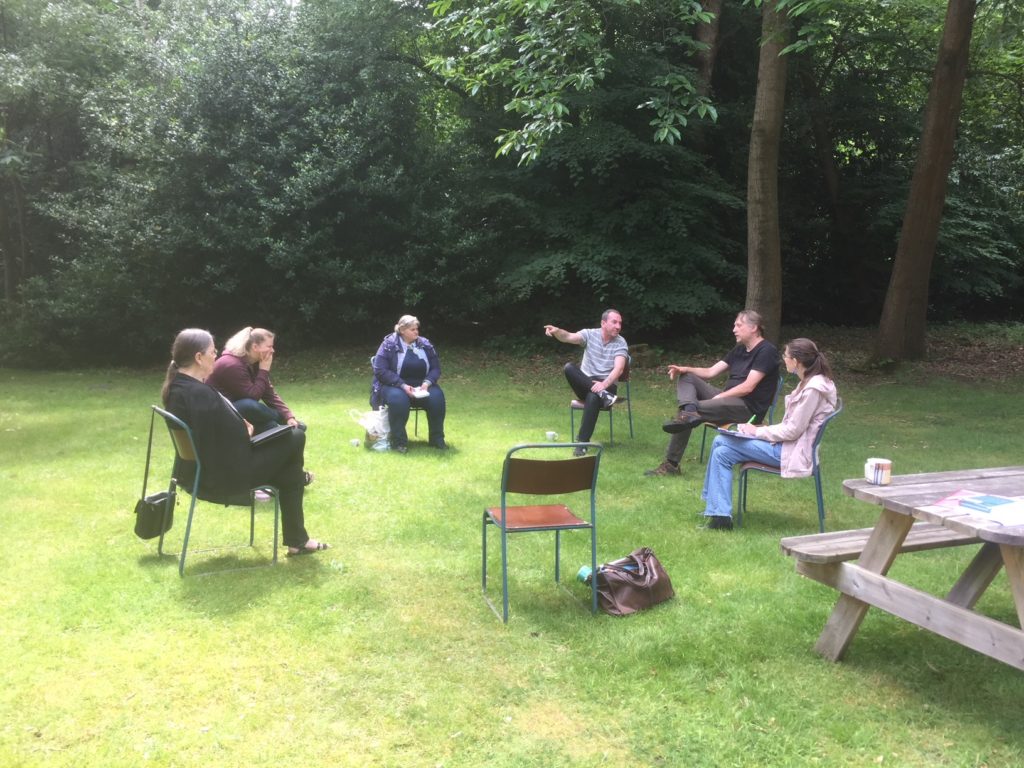 From left: Gertraud Trivedi, Murielle Double, Amanda Button, Thomas Mayes, Thomas Croft and Gwennaelle Horlait.
From left: Gertraud Trivedi, Murielle Double, Amanda Button, Thomas Mayes, Thomas Croft and Gwennaelle Horlait.
‘We may stumble over our words’
Corrinna Bain: “I’m aware of the deep emotional pain people can suffer in this situation. We need to create a safe space where people can express themselves about what really matters to them and go beyond the words of any slogan.
“So many parts of identity connect to poverty: it can be race or ethnicity, gender, age, religion, or just where you live. Each of us can be feeling a lot of emotion about these protests around the world.
“It can be hard to express what we feel and we may stumble over our words, but we each need room to identify what we’re feeling and then to share it and to be heard.
“Then after that step we can have a real dialogue with each other. It’s just like when ATD Fourth World works with social workers. We need to create some distance between them and parents who may feel very angry at their whole profession. The first step is to make sense of their experience, and then build trust and relationships to be able to meet each other with dialogue.
“I also feel angry that we are not all up in arms and protesting about people living with poverty in the UK and having to rely on food banks. It’s simply not right. We need to make real systemic changes.”
Susana Castro Mustienes: “I’m always upset too. When Spain won the World Cup, so many people poured into the streets to celebrate. Why don’t we ever see crowds that big to fight for social justice and to say that poor people’s lives matter?
“And what can ATD Fourth World learn about mobilising crowds from the Black Lives Matter movement?”
Tricia: “What gives me hope is that there’s a young generation now who gets that people should be treated equally. Because of coronavirus, there are young office workers who have been going to the homes of vulnerable people to deliver groceries. Suddenly they see the stark realities of poverty.
“They know this shouldn’t be happening and they really want to make a difference. They want social justice for everyone.”
– Diana Skelton


